Getting out of Marrakech was every bit as difficult as I expected. We were headed to the High Atlas Mountains, and to the tiny village of Imlil. Roads snake out of Marrakech and the single bus route ends at a place called Asni which is on the fringes of the Atlas Mountains. From there it is a precariously winding route some 17km up the valley and towards the highest mountain in Northern Africa; Jebel Toubkal.
Due to Ramadan the bus to Asni was not running (supposedly) so we made our way through the searing morning sun to Grand taxis, which really aren’t that grand at all. Just a large collection of relics posing to be Mercedes surrounded by greasy looking blokes whose sole purpose in life is to extract even the beads of sweat from anyone looking to get somewhere. Generally, they are meant to be share taxis with set prices of 30MAD per person, but of course these were no longer share taxis, but top of the line chauffeured AMG Mercedes that had a price to match, they were just disguised as pieces of junk.
Bargaining literally (and im not exaggerating) took about 30 minutes to get the whole car for 200MAD (£14) for the 90 minute journey, and that took every ounce of my haggling skills. It started at 800MAD.
It quickly became apparent that the problem with taxis is the cartel. The bloke dealing with all the customers is just a go between, drivers actually send you to him. So the issue is that he has to get his cut, and he doesn’t really give two shits about a few Dirhams or the driver that loses out on a fare. Dealing direct with the driver would be so much better for both parties involved, but its probably because the drivers speak little English, I don’t know. But I know I got scammed.
The taxi was easily built in the fifties, a light brown huge, long wheel base Mercedes that was falling apart. The seat-belts probably hadn’t worked since the seventies and my window was jammed down meaning sand blasted my face for the duration along with the odd fly to the face. The driver kept talking to me in French despite knowing full well I didn’t have a clue what he was talking about. He would say something, burst out laughing and I would look at him and courtesy laugh.
After about 20 minutes the arid, dry Moroccan landscape wound out into the distant mountain filled horizon. We could have been in the middle of anywhere in Africa. Reds, yellows and browns draped cacti filled dunes and ground which had dried out long ago with palm trees suckling for the last bit of water in the tormented earth. This was the Morocco I had seen in the pictures, this was the exotic mystical Arabia I had envisioned. And as the kids played top trumps in the back trying not to lean on a door in case it bailed them out, life was almost perfect.
Before we knew it dunes became hills and hills became mountains. We were in the High Atlas Mountains and cautiously winding our way up through the mountain path with huge drops on the drivers side. Still talking to me I continued the charade, and eventually we arrived at Imlil having passed through some quite beautiful scenery en route. In fact I’ll correct that – Having passed through some simply stunning scenery en route.
Imlil is one of those places that wherever you walk and whatever direction you go in you seem to be going up hill. Situated at 1740m (5,710ft), and at the foot of Northern Africa’s highest mountain it existed previously as a tiny enclave that harvested walnuts, apples and cherries. I say previously, as tragically on the 17th August 1995 there was a huge rainfall of some 2.8 inches in just 2.5 hours. Given Imlil’s positioning at the mouth and foot of a huge valley, a wall of water six metres in height rushed through the village made just of light bricks, mud and with barely thatched roofs. To put things into perspective, the amount of water was about 27 times what the village and valley would usually have to deal with, as a result 150 people were killed, which includes a number of tourists. Homes, cars and crops were completely destroyed and even now, the full loss has not been accounted for. For example, walnut trees take about 15 years to mature. The village was left in ruins, as were the lives of the inhabitants.
These days farming is still big business, but it is completely eclipsed by the tourism industry and for the climbers wanting to take on the mighty Toubkal. As you would expect, Imlil still very much has retained its roots, farmers, kids and women can all be seen tending the fields, mules are used to carry pretty much anything and no one at all speaks English other than the words “map” and “guide”. Despite Charlie bursting my ear drums all day yesterday about how awesome at French he is, it turns out he really isn’t, and all Jack and Abi could offer was days of the week and numbers.
So when we jumped out of the taxi on arrival I looked up the steep hill, looked at the kids, looked at the name of our hotel and knew it was up hill. With our bags and in the heat it was a killer walk up a long and winding hill that seemed to be the road to no where. I didn’t know how to pronounce the name of our hotel and Charlie’s effort was worse than mine. I looked across the valley and saw through a crop of cherries and apples that luck would have it we were at the wrong side of the valley.
Now, the great things about having such bad luck when it comes to things like this is that you can count on it. So, we started to wade through this field and I spotted some kids playing with a Victorian hoop where they run it along with a stick. I found myself speaking in a French accent as I tried to pronounce ‘Chez Les Berberes’ (google it, its gorgeous) I must have skills because they led us off up a huge hill which they bounced up with ease. We were all knackered and after winding past mud huts, shady looking buildings, midget sized doors and what looked like the world’s dodgiest ever building skills, we were eventually shown a door which the kids knock-a-door-runned. Some woman came out and said “Hey Stuart” I was high fiving the kids and Jack was trying to do a moonwalk in celebration. The kids reappeared and wanted a little backsheesh so I swift handed them 5 dirhams each (enough for some sweets) and we offed our boots and were shown to the upstairs which we had all to ourselves.
It was explained to me that in Imlil you rarely can get snacks and things like omelettes etc without paying for a meal. In other words it was set prices of around £7 (90MAD) each. Naturally I keeled over for five minutes after she dropped that bombshell on me. The kids were like “bonus, does that mean we’re having munchies instead”. We actually found out that in the town centre is was about £12 each. But, on a promise that once Ramadan ended we might be able to shifty some local prices we are now (as I write this) sat waiting for the sun to go down. But, the leading photo is taken from our room, and with a view like that – It’s hard to get bored. So roll on 7.30pm so we can chow down, but in the meantime we have some serious scenic beauty to feast on 🙂

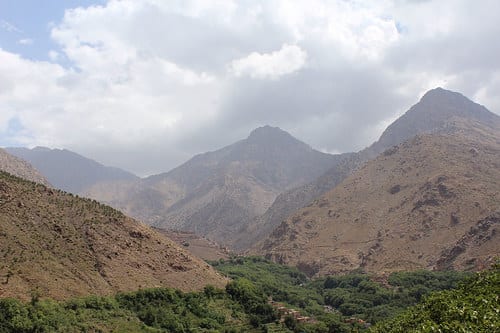
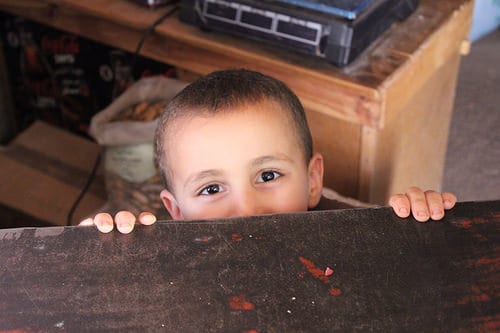
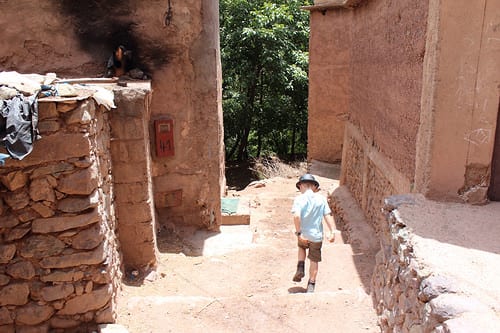
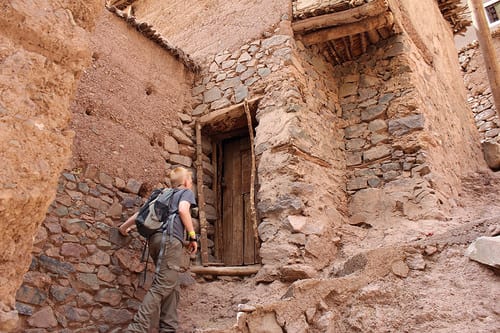
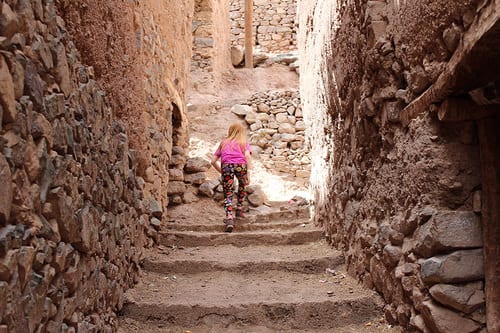
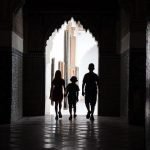
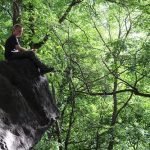
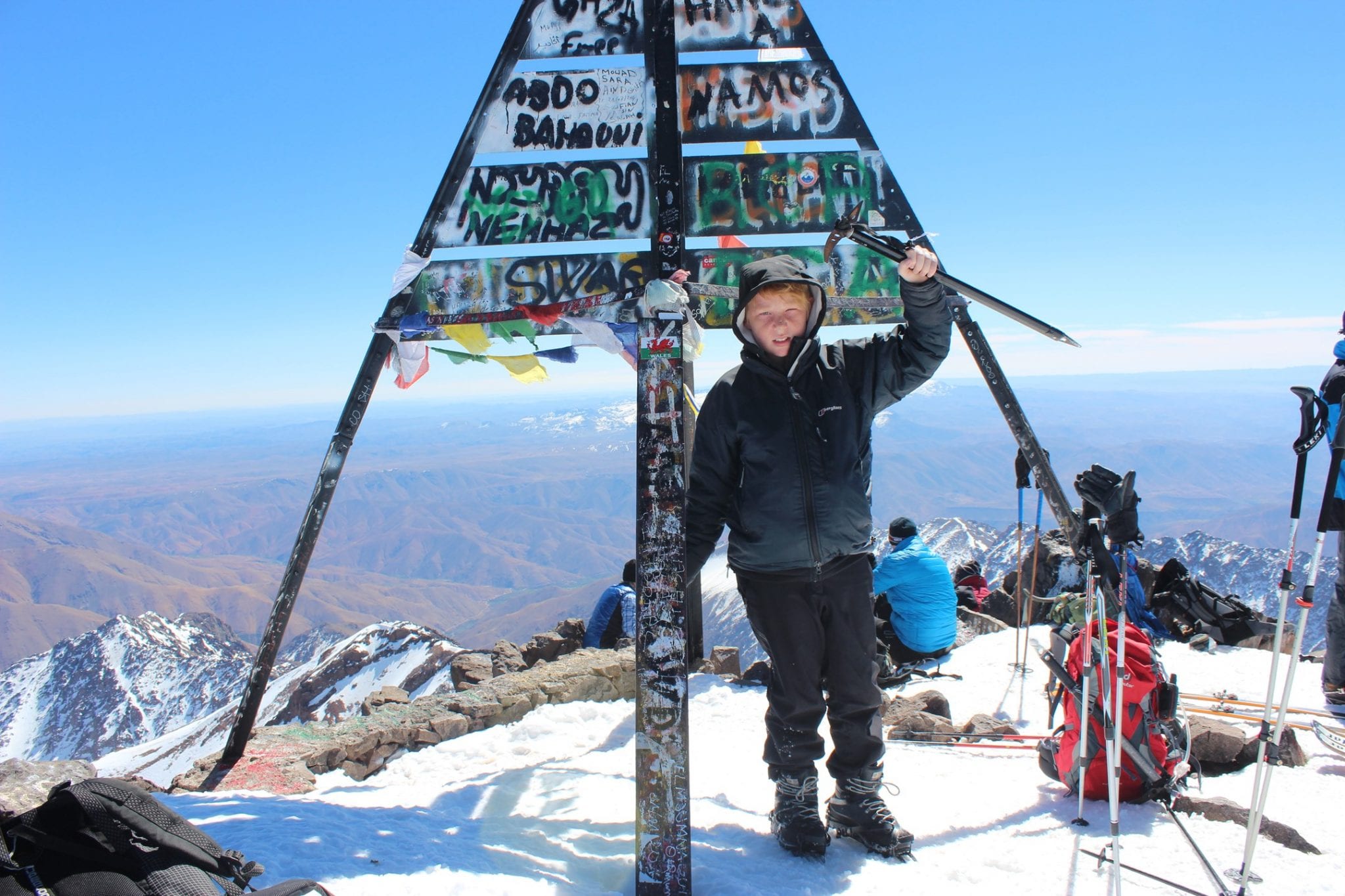
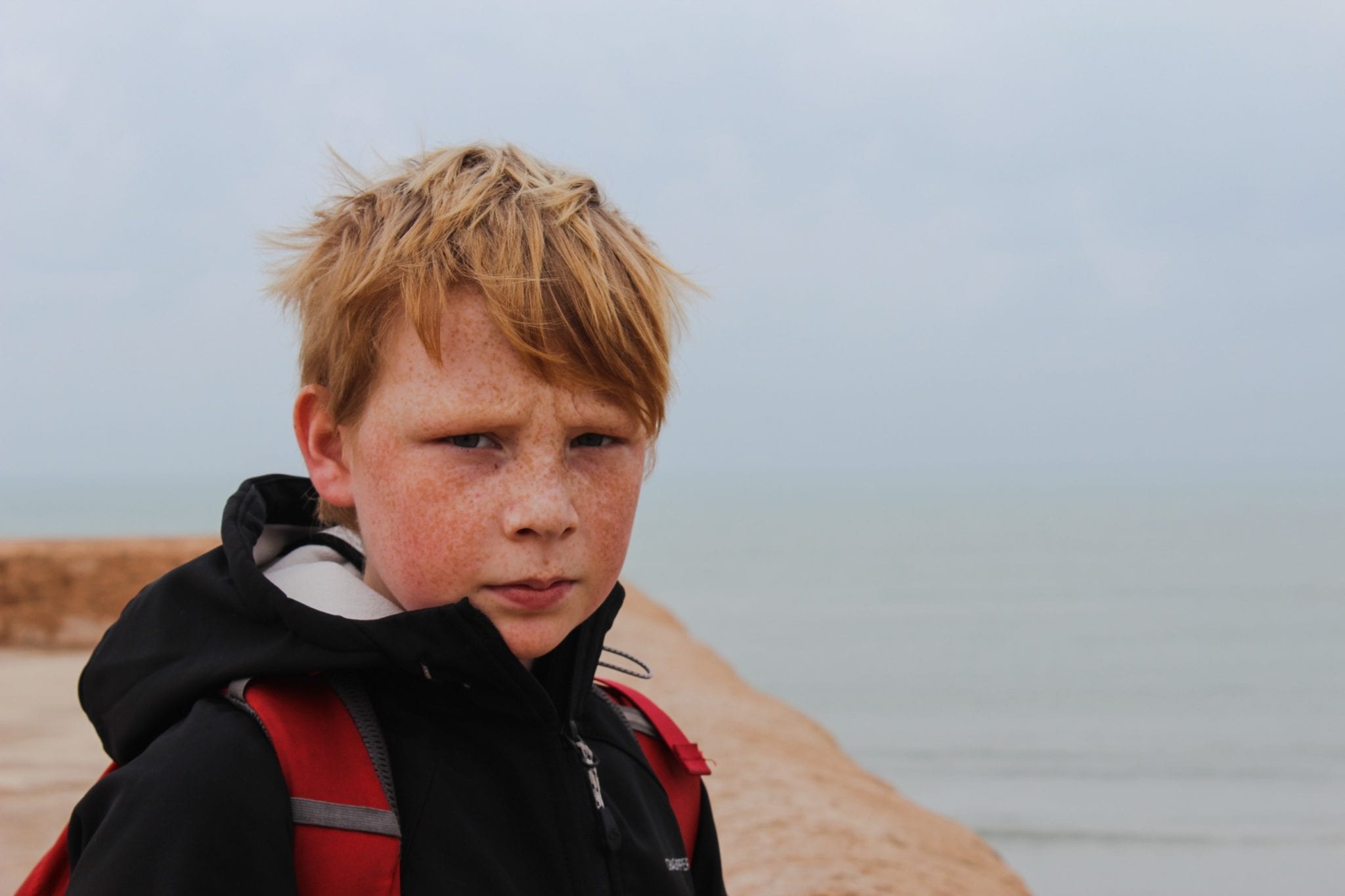
Comments are closed.